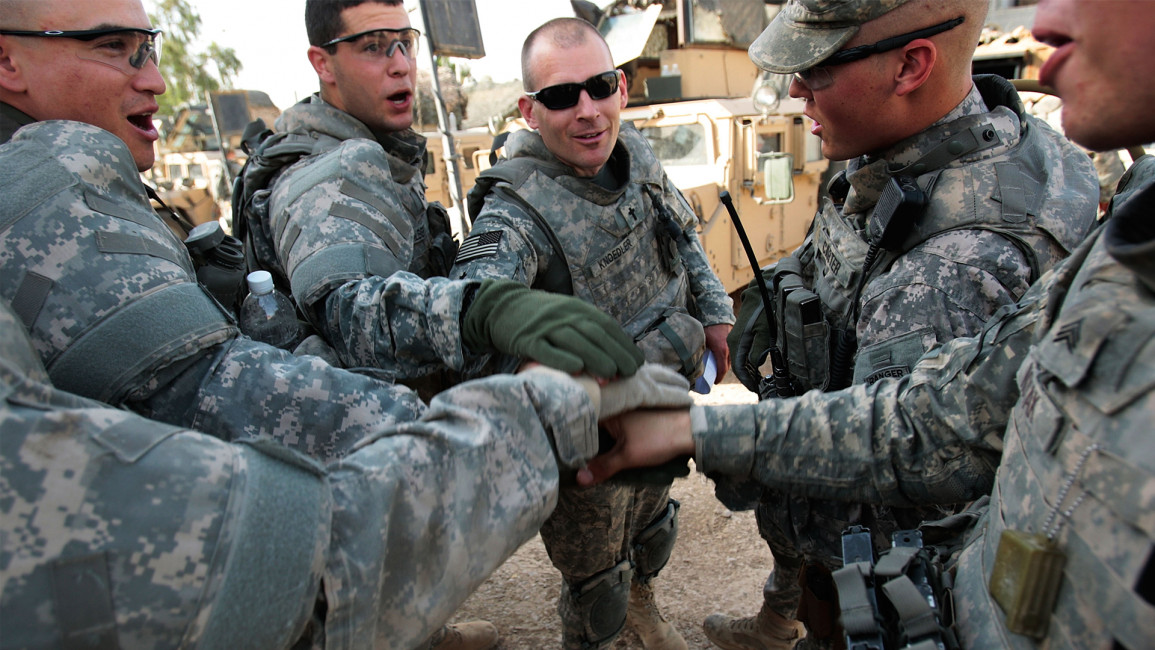US to control five military bases in Iraq
The United States and Iraq have agreed on five military bases to become permanent locations for 3,100 US troops in Iraq, a senior Iraqi military official has revealed.
“Both parties, Iraq and the US, have previously agreed on the locations for the US troops,” the official from the Iraqi Ministry of Defence told al-Araby al-Jadeed.
According to the official, who would not be named for this article, the US military will bring with them helicopters for both combat and transport usage, including Apache, Black Hawk and Chinook helicopters.
Another 1,500 US troops arrived on Friday, nearly a doubling of the 1,600 American military personnel already on the ground in Iraq. Most of the new arrivals are advisors. Others have experience in Iraq from the US occupation of the country between 2003 and 2010.
The US personnel already in the country were training and supporting Iraqi troops, mostly in Baghdad and Erbil.
The Iraqi official, who holds a senior position in the Army General Staff, said the five locations of the bases would be al-Habbaniyah (30 kilometres west of Fallujah), Ain al-Asad (90 kilometres northwest of Ramadi), Speicher air base (15 kilometres southeast of Tikrit), Balad (80 kilometres north of Baghdad), and al-Dibs, near Kirkuk.
| Iran seems to be angry at the US decision. |
Two of the bases, al-Habbaniyah and Ain al-Asad, are located in Iraq’s restive Anbar province, which is largely under the control of the Islamic State group (formerly known as ISIS). The Iraqi army is not seen as ready to fully retake areas controlled by IS, which include Mosul, the country’s third largest city.
The bases chosen for American use have been cleared of Iraqi troops.
The decision to significantly increase the number of US military personnel in Iraq will most likely be met with Iranian disapproval.
“Iran seems to be angry at the decision,” said Manaf al-Saadi, a member of the Iraqi Communist Party, who suggested a longer-than-scheduled meeting between Haidar al-Abadi, the Iraqi prime minister, and Hassan Danaei, Tehran’s representative in Baghdad, was a sign of disquiet.
Iranian fears appear to surround the ability of their allies in Iraq to work with an increased US presence. According to Saadi, the US troops will be responsible for security in 45 percent of Iraqi cities, which will limit the ability of Iranian-backed militias to operate. The militias are expected to announce their rejection of the increased US presence.
The move will also be problematic for Sunni allies of Iran in the country.
“The US has excluded Sunni figures who have close relations with Iran from its recent talks, raising Iranian concerns about their future influence in Iraq,” said Saadi.
This is an edited translation from our Arabic edition.


![Minnesota Tim Walz is working to court Muslim voters. [Getty]](/sites/default/files/styles/image_684x385/public/2169747529.jpeg?h=a5f2f23a&itok=b63Wif2V)




![Debris near Rafic Hariri International Airport [Getty]](/sites/default/files/styles/image_330x185/public/2176162423.jpeg?h=a5f2f23a&itok=MCSK9mkM)
![An Israeli air strike on Jabalia killed teenage journalist Hassan Hamad [Screengrab/X]](/sites/default/files/styles/image_212x120/public/2024-10/hassan%20hamad1.jpg?h=c12e0b96&itok=KstD_5xk)
